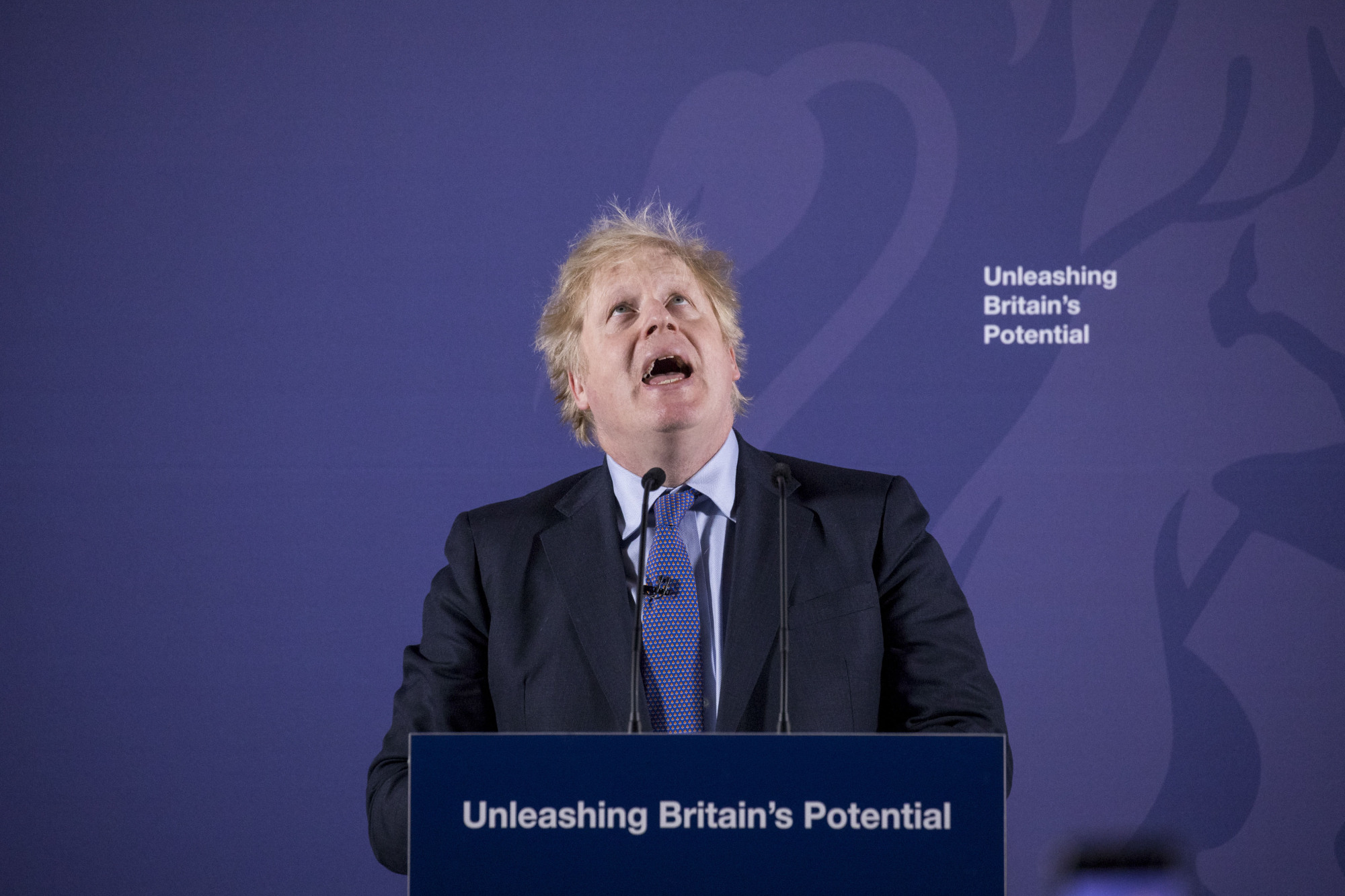Immediately after his December election victory, British Prime Minister Boris Johnson declared his principle domestic policy objective to be the rebalancing of Britain's economy, "leveling up" those parts of the United Kingdom that have been left behind financially. On Monday, speaking in the Baroque splendor of the National Maritime Museum in Greenwich, he set out his prime foreign policy goal: making Britain a global "superman" in championing free trade.
These are both reasonable goals. Johnson's government was voted into power to deliver them, backed by a strange mixture of working class former Labour voters and older Conservative Brexiters who want a swashbuckling U.K. unencumbered by ties to the European Union. The problem, as Johnson dives into trade negotiations with Brussels, is that keeping one of these constituencies happy may involve disappointing the other.
If he's to hold this new Conservative coalition together, Johnson will need to deliver economic benefits to the former Labour heartlands in England's industrial north. And if he's to deliver the global Britain promised by Brexiters after quitting the EU, he'll have to be free to strike trade agreements with countries around the world.


















With your current subscription plan you can comment on stories. However, before writing your first comment, please create a display name in the Profile section of your subscriber account page.